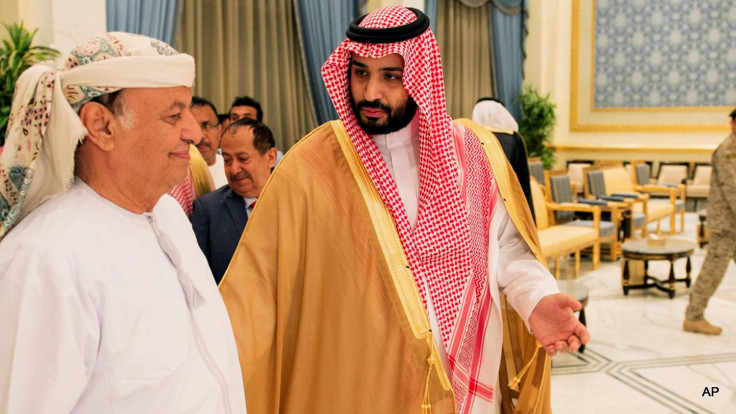Saudi Arabia’s Largest Lender NCB To Acquire Smaller Rival Samba Financial

KEY POINTS
- NCB will issue up to 1.54 billion new shares to Samba stockholders in the transaction
- The merger will also create a megabank with a lending portfolio worth $115 billion.
- The Public Investment Fund is the largest stockholder in both NCB and Samba
Saudi Arabia’s largest bank by assets, National Commercial Bank, or NCB, signed an agreement to acquire rival lender Samba Financial Group in a transaction valued at up to $15.6 billion.
Under terms of the deal, NCB will pay a premium of up to 27.5% relative to Samba’s closing price on Wednesday.
NCB will issue up to 1.54 billion new shares to Samba stockholders in the transaction.
The combined bank will have total assets of some $210 billion, making it the third largest regional lender behind only Qatar National Bank and First Abu Dhabi Bank.
The merger will also create a megabank with a lending portfolio worth 432 billion riyals ($115 billion).
NCB said it doesn’t expect the merger to result in any job cuts.
“Samba is likely to offer value to NCB with a strong franchise in large corporates and capital market operation,” said Edmond Christou, a banking analyst at Bloomberg Intelligence. “Samba has one of the best capital and liquidity [positions], and it has consistently managed its credit quality prudentially and its cost of risk [is] below the industry [average]. For Samba, this could mean [a] better position in [the] retail space and closer ties to public sector financing.”
The merger reflects Saudi Arabia’s desire to strengthen its banking sector as it deals with both the covid-19 pandemic and low crude prices. Banks in the kingdom are also facing weak private sector loan growth and lower government spending.
The Public Investment Fund, or PIF, Saudi Arabia’s sovereign wealth fund, has been examining which other financial institutions might be merged in order to increase scale and competitiveness in the sector.
PIF, chaired by Crown Prince Mohammed bin Salman, is the largest stockholder in both NCB and Samba. PIF owns about 44% of NCB and 23% of Samba. Two other government funds -- the General Retirement Organization (11.5%) and the General Organization for Social Insurance (7.1%) -- also own stakes in Samba.
Last December, NCB cancelled plans to merge with Saudi’s Riyad Bank without specifying a reason.
However, a number of other Middle Eastern banks have been consolidating in recent years.
Last summer, Saudi British Bank, which is part-owned by HSBC Holdings Plc (HSBC) completed its acquisition of Alawwal Bank, which was part-owned by Royal Bank of Scotland Group (RBS).
The Saudi Arabian Monetary Authority, the kingdom’s central bank, has introduced nearly $27 billion in stimulus packages to help prop up banks and boost private sector employment in recent months.
Earlier this month some Saudi bankers said the sector faced some difficult quarters ahead.
“This crisis is not going to be over in a very short period of time,” said David Dew, managing director of Saudi British Bank. “The second and probably third quarters will remain challenging and 2020 will be a tough year.”
Ammar Alkhudairy, chairman of Samba, said profitability will be pressured by lower net interest margins, and probably higher non-performing loans.
“The margin compression will cause us, as well as all other banks, some profitability deterioration,” he said. “Given the economic situation, maybe loan growth is not the number one priority for banks right now.”
© Copyright IBTimes 2025. All rights reserved.





















